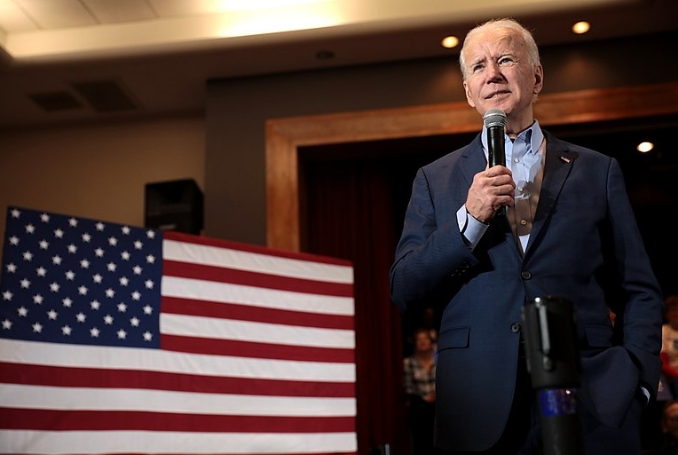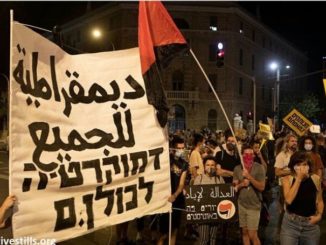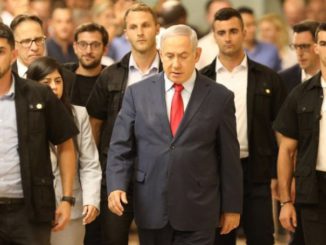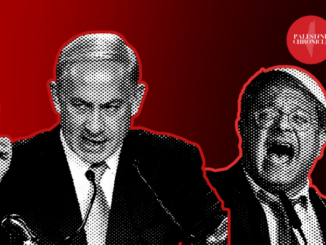
Saudi-Israel normalization will not succeed if the plight of the Palestinians is ignored, US Democrat senators have warned as talk of a possible landmark three-way deal between Washington, Riyadh and Tel Aviv gathers pace.
Democratic Senators Chris Van Hollen and Tim Kaine have stated that the occupation of Palestine must feature prominently in any potential deal brokered by US President Joe Biden.
With one eye on the 2024 elections, the US president is reportedly keen to secure a deal between the Saudis and the Israelis.
Biden is purportedly willing to pay a high price, including offering Riyadh a North Atlantic Treaty Organization (NATO)-level mutual security treaty that would enjoin the US to come to Saudi Arabia’s defense if attacked, high-tech weapons sale and allowing the Saudis to develop a nuclear program.
Though the Saudis have repeatedly stressed that normalization with Israel will only progress on the condition Israel ends its occupation, it’s not clear what Crown Prince Mohammed Bin Salman would do if the Biden administration were ready to pay such a high price.
It’s claimed that Bin Salman is not too concerned about the Palestinian issue and is ready to reach an agreement if Washington is prepared to meet his demands. Israel has also claimed that normalization with Saudi Arabia isn’t linked to concessions for Palestinians.
Democratic Sens. Chris Van Hollen and Tim Kaine both say the Palestinians must feature prominently in any potential Biden-brokered deal between Israel and Saudi Arabia https://t.co/ezO35ncdRl
— Shibley Telhami (@ShibleyTelhami) August 9, 2023
Checkbox
Israeli officials have downplayed the significance of Palestine in any future deal, with Prime Minister Benjamin Netanyahu likening it to a mere “checkbox”, implying it won’t hinder Bin Salman’s support.
However, as both Van Hollen and Kaine have indicated, the primary obstacle facing Netanyahu may not be in the Middle East but closer to home: the Democratic-controlled US Senate, responsible for ratifying any prospective deal.
Some Democratic senators have stressed the importance of incorporating substantial Palestinian commitments into the agreement.
“We continue to hear from the government of Israel that Mohammed Bin Salman doesn’t give a damn about Palestinian interests, but many of us believe that the long-term sustainable peace can only be secured by addressing the critical Palestinian questions,” conveyed Van Hollen.
The crown prince: “May not care about the Palestinians and a two-state solution, but Congress certainly does,” expressed another member of Congress.
Another reason why the Biden administration is in a rush is that it views Israeli-Saudi normalization as a potential catalyst for change, steering Netanyahu’s coalition away from annexation and preserving Israeli democracy.
Palestinian Rights
However, Democratic senators stress that any successful agreement must ensure Palestinian rights and aspirations.
“The lack of peace between Israelis and Palestinians is a festering wound in the region,” Senator Kaine asserted, highlighting the importance of Arab nations’ support for peace.
For Van Hollen, non-negotiable conditions include halting settlement expansion, reversing West Bank outpost legalization and securing Palestinian growth.
He emphasized the need for enforceable agreements involving both Israel and the US.
As the debate unfolds, there is growing skepticism within the Democratic ranks, given their fraught relations with Netanyahu and the Saudi crown prince.
Israeli officials recognize the potential difficulty getting the US Congress to sign off on any deal.
The Abraham Accords, facilitated by former US President Donald Trump’s administration, circumvented congressional approval.
The only part of the accords that did require congressional approval – the sale of F-35 aircraft to the United Arab Emirates – has never been ratified.
(MEMO, PC)







